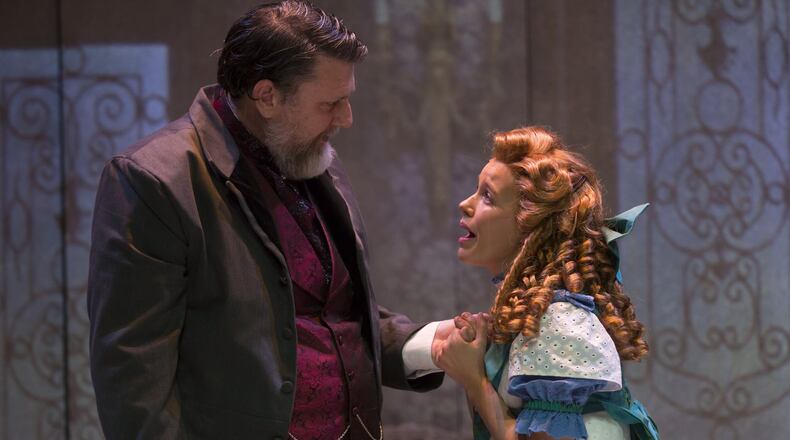Talk about the “dark web.” In the futuristic, vaguely Orwellian setting of Jennifer Haley’s drama “The Nether,” a government investigator interrogates the creator of a virtual-reality computer program that transports users back to the “simpler times” of the Victorian era — providing “total sensory immersion” and offering participants the opportunity to indulge their every desire, to live and act without any fear of consequence, essentially enabled to engage in ways that they’d ordinarily never dare to.
That might sound like it could be fun, but in the disturbing realm of “The Nether,” it’s an eerie parallel universe mostly involving dirty older men and their prurient “proclivities” toward innocent little girls. Whether it means sexual molestation and abuse, or possibly even murder with a supernaturally illuminated axe, they really needn’t worry about it, because the girl is always resurrected and rebooted in time for the next round of the “game.”
RELATED: Everything you need to know about theater season in Atlanta
In director Ibi Owolabi’s economical production for Theater Emory, the action alternates between equally grim worlds of reality and fantasy, starkly delineated in the atmospheric lighting of Brent Glenn, and in Alan Yeong’s modest costumes. Rather than utilizing a lot of traditional theatrical scenery or décor to further contrast the period details, Owolabi enlists more of the industrious handiwork of projection designer Milton Cordero (who most recently left his distinctive mark on Horizon’s “The Curious Incident of the Dog in the Night-Time”).
As played by the earnest young actress Stephanie Escorza, the character of Detective Morris probably isn’t as physically imposing or threatening as it could have been. By the same token, as played by Thomas Ward, her prime suspect isn’t as psychologically insinuating or sinister as he should be — neither as Mr. Sims, who created the high-tech “hideaway,” nor as Papa, the online avatar who controls it.
Inscrutable existential discussions ensue between them about “identity encryption” and the “contextual framework of being,” about “crossing over” and “permanent shade,” and about something called the “institution of metaphysical servitude.” At one point, Papa/Sims notes, “Just because the nether is virtual doesn’t mean it isn’t real.”
Joining in the conversation, and adding to the confusion, Morris also questions another user, Mr. Doyle Marcus Durham, bland), who may be an undercover agent. Or is he the player behind the internet persona of Mr. Woodnut (otherwise portrayed by Tsiambwom Akuchu), a virtuous young suitor in the game? Or perhaps he inhabits the adolescent damsel in distress, the archetypically sweet and forever victimized Iris (Devon Hales). Then again, for that matter, is Morris exactly who she claims to be?
Haley covered similar thematic ground in her cryptic “Neighborhood 3: Requisition of Doom” (presented in 2012 at Aurora), in which a video game overtakes the minds of the kids who play it, wreaking gruesome havoc on their real lives. There, too, you couldn’t always tell when the actors were playing human characters, or when they were playing computerized alter egos. And hearing other people talk about it or watching them get to play it wasn’t quite the same as truly experiencing the game for ourselves.
In essence, “The Nether” is more of the same, more or less.
THEATER REVIEW
“The Nether”
Through Nov. 17. 7:30 p.m. Wednesdays-Saturdays; 2 p.m. Sundays. $15. Theater Lab at the Schwartz Center for Performing Arts (on the Emory campus), 1700 N. Decatur Rd., Atlanta. 404-727-5050, theater.emory.edu.
Bottom line: A ponderous techno-drama.
About the Author
Keep Reading
The Latest
Featured



